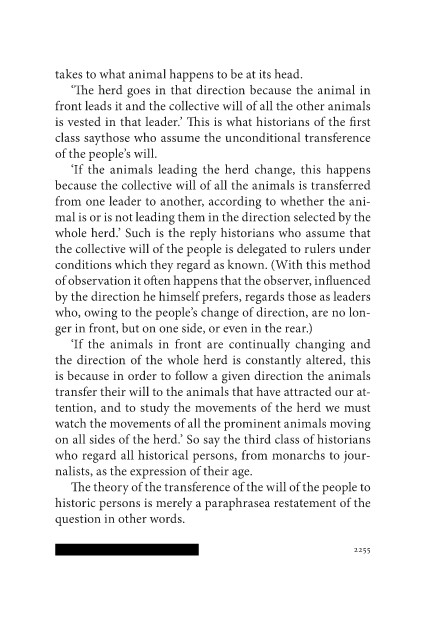Page 2255 - war-and-peace
P. 2255
takes to what animal happens to be at its head.
‘The herd goes in that direction because the animal in
front leads it and the collective will of all the other animals
is vested in that leader.’ This is what historians of the first
class saythose who assume the unconditional transference
of the people’s will.
‘If the animals leading the herd change, this happens
because the collective will of all the animals is transferred
from one leader to another, according to whether the ani-
mal is or is not leading them in the direction selected by the
whole herd.’ Such is the reply historians who assume that
the collective will of the people is delegated to rulers under
conditions which they regard as known. (With this method
of observation it often happens that the observer, influenced
by the direction he himself prefers, regards those as leaders
who, owing to the people’s change of direction, are no lon-
ger in front, but on one side, or even in the rear.)
‘If the animals in front are continually changing and
the direction of the whole herd is constantly altered, this
is because in order to follow a given direction the animals
transfer their will to the animals that have attracted our at-
tention, and to study the movements of the herd we must
watch the movements of all the prominent animals moving
on all sides of the herd.’ So say the third class of historians
who regard all historical persons, from monarchs to jour-
nalists, as the expression of their age.
The theory of the transference of the will of the people to
historic persons is merely a paraphrasea restatement of the
question in other words.
2255

